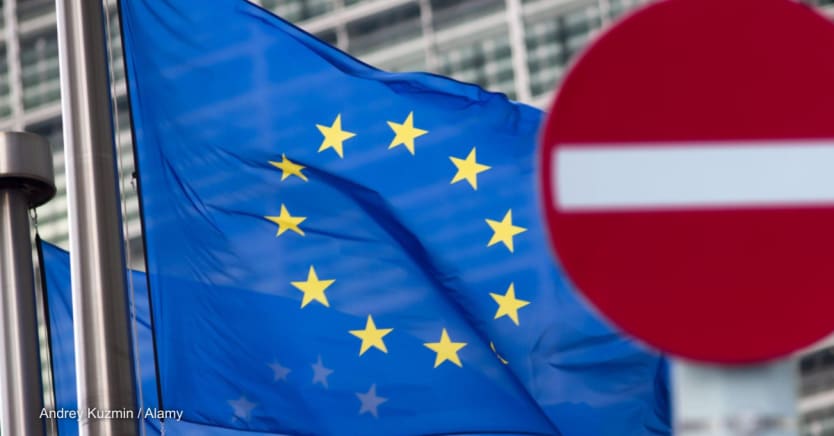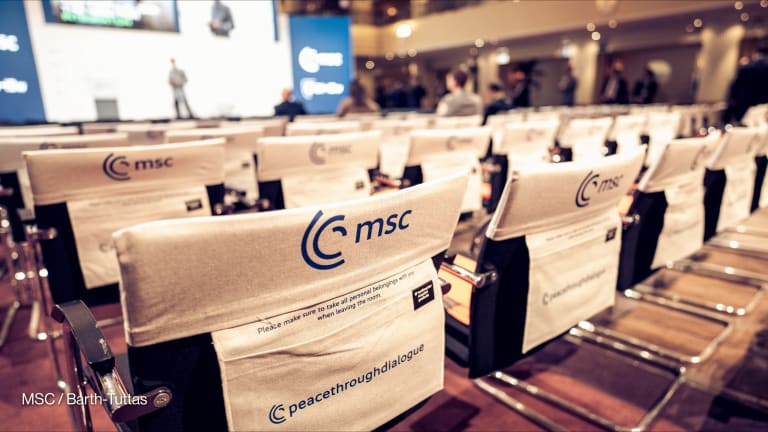Exclusive: EU says Russia not invited to Brussels conference for Syria

The European Union will not invite Russia to an upcoming pledging conference on the Syrian conflict, saying that Moscow’s aggression against Ukraine shows it lacks “a genuine interest to contribute to peace in the world.”
The annual event, set for next month, features governments, international organizations, and civil society groups and provides a platform for Syrians and the region to be heard.
How Ukrainian civil society is documenting alleged Russian war crimes
The world has been shocked by allegations of war crimes committed by Russian forces in Ukraine. But before international investigators arrived on the scene, Ukrainians themselves were documenting the atrocities they experienced.
On Friday, an EU spokesperson confirmed that Russia — which has attended though not pledged significant humanitarian assistance at previous Brussels conferences — is not invited to this year’s event. Russia joined the conflict in Syria in September 2015 on Syrian President Bashar Assad’s side and has been accused of war crimes for indiscriminately bombing civillians. Moscow has faced international opprobrium and widening sanctions from the EU and others since invading Ukraine on Feb. 24 of this year.
“We are inviting those partners who have a genuine interest to contribute to peace in the world, which Russia has also through its aggressions on Ukraine proven not to have,” an EU spokesperson said Friday in an email to Devex regarding the Syria conference.
“The European Union and its Member States will continue to advance global efforts to pressure Russia to immediately cease its military aggression against Ukraine and withdraw from the whole of the country and fully respect Ukraine’s territorial integrity, sovereignty and independence. In this regard, the EU – along with many of our partners – will continue to send a clear message of rejection of Russia’s military aggression against Ukraine in international fora,” the spokesperson said.
Giuseppe Famà, head of EU affairs at the International Crisis Group, told Devex on Friday that the bloc’s move was coherent with its strategy to isolate Russia in the multilateral sphere.
“When it comes to the Brussels Syria conference specifically, that may not have a major impact when it comes to the financing so far,” Famà said, “although it is a sign of the difficulty that all the parties will have on finding a meaningful avenue of cooperation on the Syrian conflict in the future.”
The United Nations will participate in the "important annual event” but, unlike in previous years, it will not be co-hosting, U.N. Office for the Coordination of Humanitarian Affairs spokesperson Jens Laerke told Devex in a statement Friday.
“The European Union made a decision not to invite the Russian Federation, and we refer to them for their reasoning,” Laerke wrote. “The Russian Federation is a Member State of the UN and a permanent member of the UN Security Council, and a key interlocutor.”
Barry Andrews, an Irish member of European Parliament who is following the Syrian conflict, told Devex on Friday that lines of communication will need to be maintained with Russia for specific purposes, such as the extension of a U.N. mandate that facilitates aid delivery across the Turkey-Syria border and that expires in July.
However, he said that “the Brussels VI conference is dedicated in large part to remediating the damage done by Russia in Syria so it is completely understandable if Russia is not invited.”
Devex has contacted the Syrian and Russian governments for comment.
Search for articles
Most Read
- 1
- 2
- 3
- 4
- 5








